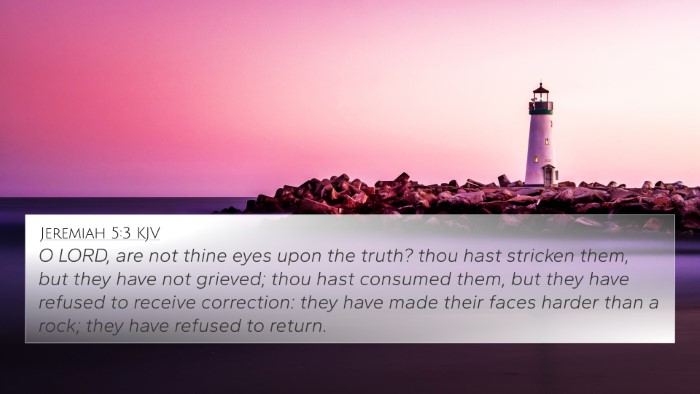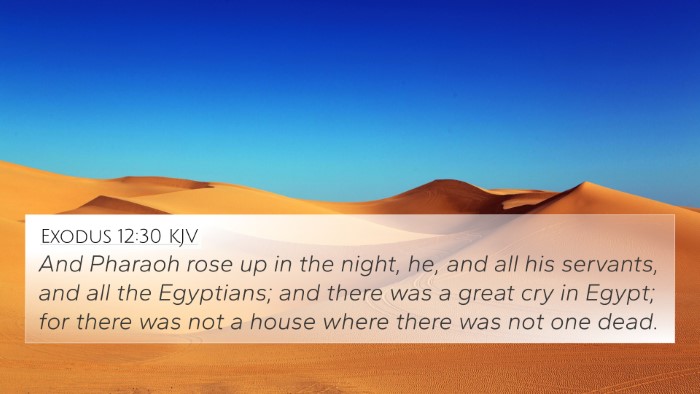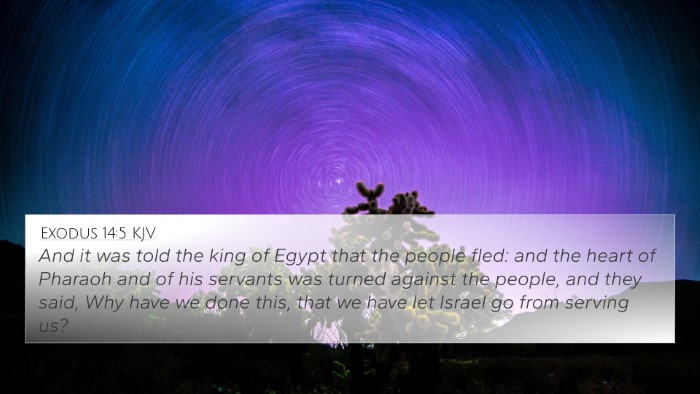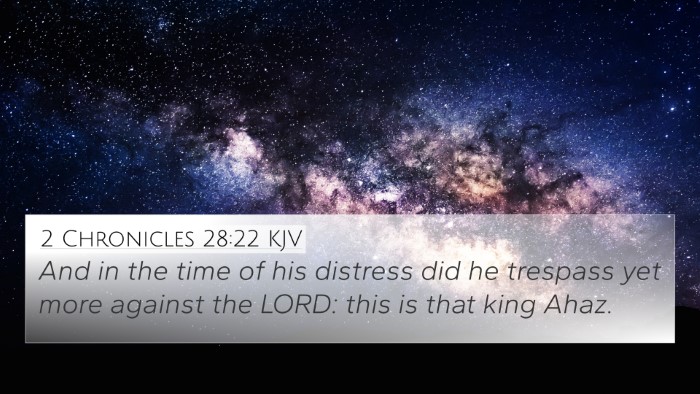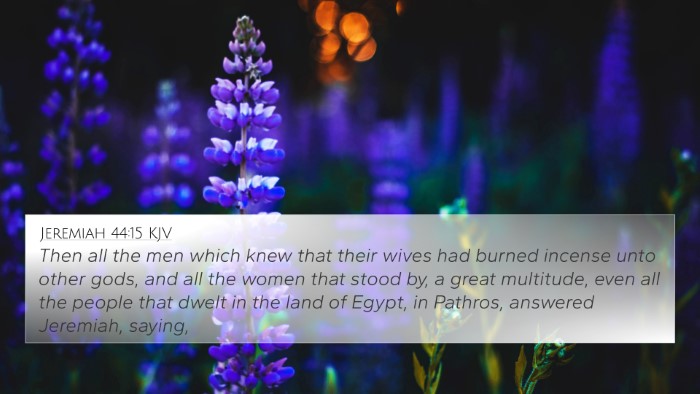Understanding Proverbs 27:22
“Though you grind a fool in a mortar, yet will his foolishness not depart from him.”
Proverbs 27:22 presents a metaphorical statement highlighting the enduring nature of foolishness. Even with the most intense methods of correction or discipline, a fool will remain unchanged in their folly. The verse emphasizes the inherent difficulty in changing someone who is unwilling to learn or grow.
Key Themes and Exegesis
This verse can be understood through several key themes:
- The Persistence of Folly: The assertion that foolishness remains intact despite severe treatment speaks to the deep-rooted nature of folly.
- Limitations of Correction: It highlights the futility of trying to reform those who are resistant to change.
- The Role of Wisdom: Contrasting foolishness with the pursuit of wisdom, emphasizing that wisdom is a choice.
Commentary Insights
Building on insights from noted theologians:
Matthew Henry's Commentary
Matthew Henry emphasizes that the verse serves as a solemn reminder of the persistent nature of folly in certain individuals. He notes that even the most rigorous attempts at correction can prove ineffective, which serves as a caution for parents and mentors. Henry suggests that the roots of foolishness lie deeper than mere behaviors; they reside in the heart and determination of the individual.
Albert Barnes' Commentary
Albert Barnes explains that the terms “grind” and “mortar” symbolize intense pressure or discipline. However, he underscores that the essence of a fool’s nature cannot be altered through external means. The transformation of character requires an internal change, rooted in a desire to seek wisdom.
Adam Clarke's Commentary
Adam Clarke elucidates that the image of grinding in a mortar indicates a desperate measure, reflecting that no method is too extreme in attempting to correct folly. However, his analysis reveals the sobering truth that truly foolish individuals often embrace their condition, rendering them impervious to correction. This leads to a broader understanding of human nature and free will.
Bible Verse Cross-References
To enrich the understanding of Proverbs 27:22, various cross-references can be explored, revealing the connections between biblical texts:
- Proverbs 1:7: "The fear of the Lord is the beginning of knowledge: but fools despise wisdom and instruction."
- Proverbs 26:11: "As a dog returneth to his vomit, so a fool returneth to his folly."
- Proverbs 9:7: “He that reproveth a scorner getteth to himself shame; and he that rebuketh a wicked man getteth himself a blot.”
- Proverbs 14:7: "Go from the presence of a foolish man, when thou perceivest not in him the lips of knowledge."
- Proverbs 12:15: "The way of a fool is right in his own eyes: but he that hearkeneth unto counsel is wise."
- Proverbs 15:5: "A fool despiseth his father's instruction: but he that regardeth reproof is prudent."
- Ecclesiastes 10:13: "The beginning of the words of his mouth is foolishness: and the end of his talk is mischievous madness."
- James 1:22: "But be ye doers of the word, and not hearers only, deceiving your own selves."
- Titus 1:16: "They profess that they know God; but in works they deny him, being abominable, and disobedient, and unto every good work reprobate."
- Matthew 7:26: "And every one that heareth these sayings of mine, and doeth them not, shall be likened unto a foolish man, which built his house upon the sand."
Thematic Bible Verse Connections
Examining Proverbs 27:22 reveals significant connections between various themes within the Bible:
- Folly vs. Wisdom: This theme is prevalent throughout Proverbs, highlighting the stark contrast between the wise and the foolish.
- The Role of Instruction: Multiple verses echo the importance of embracing correction and discipline.
- Consequences of Foolishness: Many biblical narratives illustrate the inevitable outcomes of a foolish lifestyle.
Conclusion: The Importance of Cross-Referencing Scriptures
In studying Proverbs 27:22, the use of tools for Bible cross-referencing enhances our understanding of the text. By exploring connections between Bible verses, one can grasp the broader themes and teachings found in scripture. This verse, like many others, serves as a powerful reminder of the importance of wisdom, the pitfalls of folly, and the necessity of seeking knowledge. Engaging in cross-referencing not only deepens one's study of the scriptures but also fosters a richer understanding of the overarching biblical narrative.




